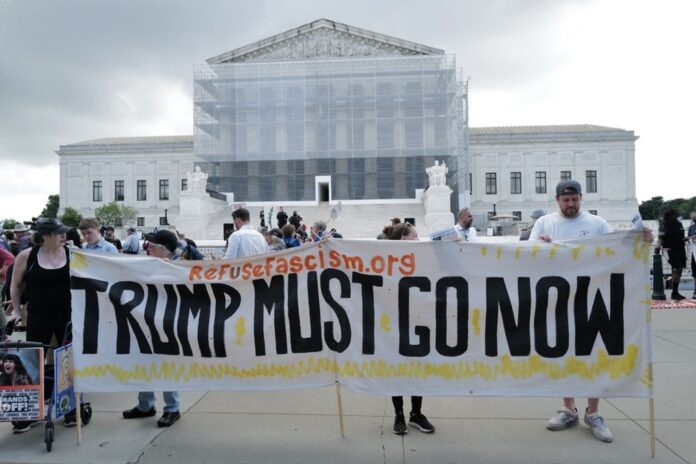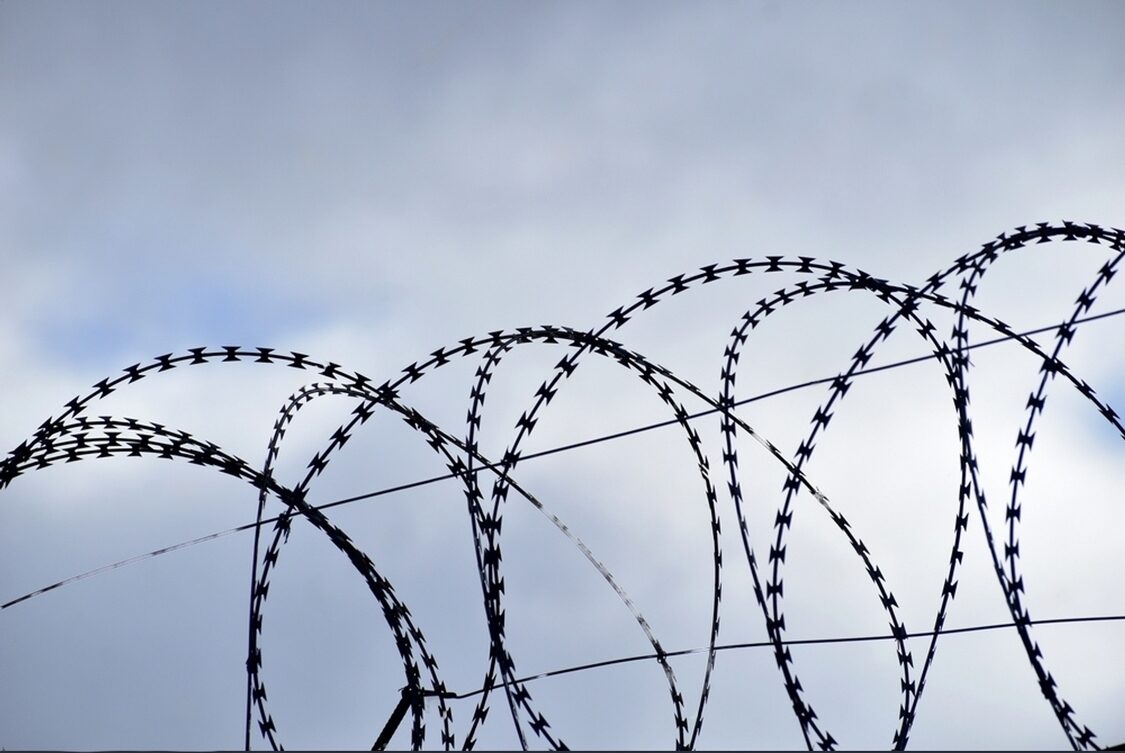WASHINGTON, June 27 (Reuters) – The U.S. Supreme Court handed President Donald Trump a major victory on Friday in a case involving birthright citizenship by curbing the ability of judges to impede his policies nationwide, changing the power balance between the federal judiciary and presidents.
The 6-3 ruling, authored by conservative Justice Amy Coney Barrett, did not let Trump’s directive restricting birthright citizenship go into effect immediately, directing lower courts that blocked it to reconsider the scope of their orders. The ruling also did not address the legality of the policy, part of Trump’s hardline approach toward immigration.
The Republican president lauded the ruling and said his administration can now try to move forward with numerous policies, such as his birthright citizenship executive order that he said “have been wrongly enjoined on a nationwide basis.”
“We have so many of them. I have a whole list,” Trump told reporters at the White House.
The court granted the administration’s request to narrow the scope of three so-called “universal” injunctions issued by federal judges in Maryland, Massachusetts, and Washington state that halted enforcement of his directive nationwide while litigation challenging the policy plays out. The court’s conservative justices were in the majority, and its liberal members dissented.
The ruling specified that Trump’s executive order cannot take effect until 30 days after Friday’s ruling. The ruling thus raises the prospect of Trump’s order eventually applying in some parts of the country.
Federal judges have taken steps, including issuing numerous nationwide orders impeding Trump’s aggressive use of executive action to advance his agenda. The three judges in the birthright citizenship litigation found that Trump’s order likely violates citizenship language in the U.S. Constitution’s 14th Amendment.
On his first day back in office, Trump signed an executive order directing federal agencies to refuse to recognize the citizenship of children born in the United States who do not have at least one parent who is an American citizen or a lawful permanent resident, also called a “green card” holder.
Warning against an “imperial judiciary,” Barrett wrote, “No one disputes that the Executive must follow the law. But the Judiciary does not have unbridled authority to enforce this obligation – in fact, sometimes the law prohibits the Judiciary from doing so.”
Liberal Justice Sonia Sotomayor called the ruling a “travesty for the rule of law” as she read a summary of her dissent from the bench.
In her written dissent, joined by the court’s two other liberal justices, Sotomayor criticized the court’s majority for ignoring whether Trump’s executive order is constitutional.
“Yet the order’s patent unlawfulness reveals the gravity of the majority’s error and underscores why equity supports universal injunctions as appropriate remedies in this kind of case,” Sotomayor wrote.
More than 150,000 newborns would be denied citizenship annually under Trump’s directive, according to the plaintiffs who challenged it, including the Democratic attorneys general of 22 states as well as immigrant rights advocates and pregnant immigrants.
The ruling was issued on the final day of decisions on cases argued before the Supreme Court during its nine-month term that began in October. The court also issued rulings on Friday backing a Texas law regarding online pornography, letting parents opt children out of classes when storybooks with LGBT characters are read, endorsing the Federal Communications Commission’s funding mechanism for expanded phone and broadband internet access, and preserving Obamacare’s provision on health insurers covering preventive care.
‘MONUMENTAL VICTORY’
Trump called the ruling a “monumental victory for the Constitution, the separation of powers, and the rule of law.”
The policies Trump said his administration can now attempt to proceed with include cutting off funds to so-called “sanctuary cities,” suspending resettlement of refugees in the United States, freezing “unnecessary” federal funding, and preventing federal funds from paying for gender-affirming surgeries.
The case before the Supreme Court was unusual in that the administration used it to argue that federal judges lack the authority to issue “universal” injunctions, and asked the justices to rule that way and enforce the president’s directive even without weighing its legal merits.
.
The ruling said judges may provide “complete relief” only to the plaintiffs before them. It did not foreclose the possibility that states might need an injunction that applies beyond their borders to obtain complete relief.
“We decline to take up those arguments in the first instance,” wrote Barrett, who Trump appointed to the court in 2020.
The ruling left untouched the potential for plaintiffs to seek wider relief through class action lawsuits, but that legal mechanism is often harder to successfully mount.
In her dissent, Sotomayor said Trump’s executive order is unconstitutional. So rather than defend it on the merits, she wrote, the Justice Department “asks this Court to hold that, no matter how illegal a law or policy, courts can never simply tell the Executive to stop enforcing it against anyone.”
Sotomayor advised parents of children who would be affected by Trump’s order “to file promptly class action suits and to request temporary injunctive relief for the putative class.”
Maryland-based U.S. District Judge Deborah Boardman, who previously blocked the order nationwide, scheduled a Monday hearing after immigration rights advocates filed a motion asking her to treat the case as a class action and block the policy nationwide again.
“The Supreme Court has now instructed that, in such circumstances, class-wide relief may be appropriate,” the lawyers wrote in their motion.
Washington state Attorney General Nick Brown, whose state helped secure the nationwide injunction issued by a judge in Seattle, called Friday’s ruling “disappointing on many levels” but stressed that the justices “confirmed that courts may issue broad injunctions when needed to provide complete relief to the parties.”
Universal injunctions have been opposed by presidents of both parties – Republican and Democratic – and can prevent the government from enforcing a policy against anyone, instead of just the individual plaintiffs who sued to challenge the policy.
Proponents have said they are an efficient check on presidential overreach, and have stymied actions deemed unlawful by presidents of both parties.




